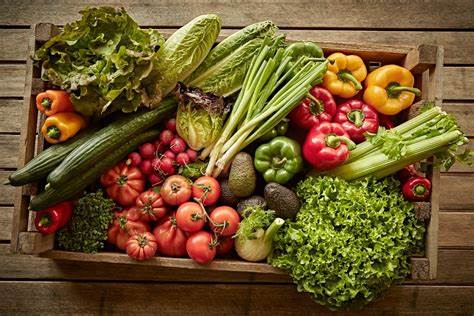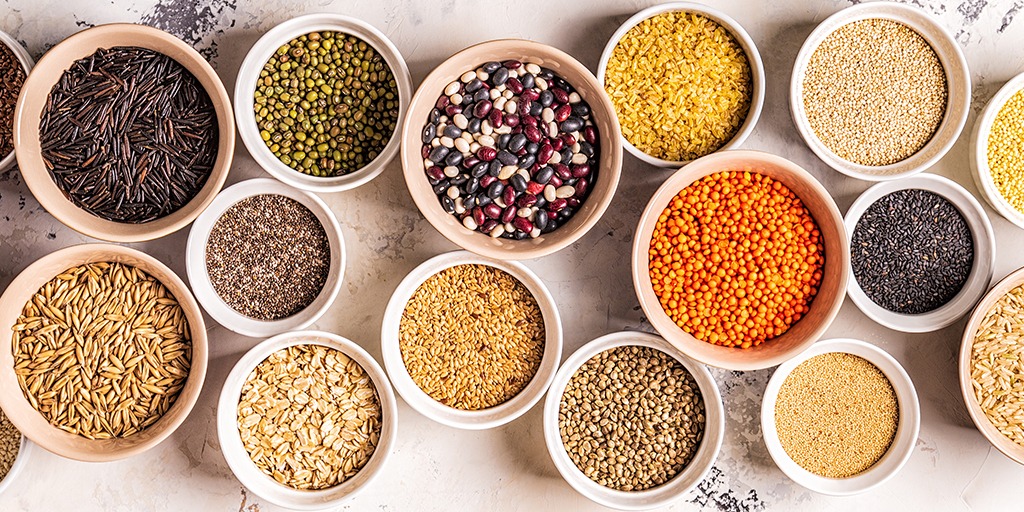Organic food
Courtesy : www.betterhealth.vic.gov.au/
Organic farmers and food producers grow and produce food without using synthetic chemicals such as pesticides and artificial fertilisers. They do not use genetically modified (GM) components or expose food to irradiation.
Animal welfare and environmental sustainability are important issues for organic farmers. The term ‘organic’ can also cover animal products. For example, eggs certified as organic are free range, rather than from caged (battery) hens.
Types of organic foods available in Australia include fruit and vegetables, dried legumes, grains, meat and meat products, dairy foods, eggs, honey and some processed foods.
Organic farming
Animals raised using organic methods are treated humanely and with respect. For example, chickens are free range and not kept in cages, and cows are not kept in feed lots. Animals are also not fed any growth-regulating drugs, steroids, hormones or antibiotics. However, the animals may be treated with vaccines to prevent disease.
Organic farming is also concerned with protecting the environment and working in harmony with existing ecosystems – including conserving water, soil and energy, and using renewable resources and natural farming cycles.
Traditional farming methods are often used, such as rotating crops to prevent nutrient depletion in soil and integrating crops and livestock.
Pesticides and other chemicals in organic food
Organic foods are not necessarily completely chemical free. They may be grown on land not previously used for organic food production and, therefore, might contain chemical residues. However, the pesticide residues in organic food are considerably lower than those found in conventional farming – where foods are produced with synthetic chemicals.
Also, some naturally occurring pesticides are permitted for use in organic farming and include:
- pyrethrins
- light oils
- copper
- sulphur
- biological substances (such as Bacillus thuringiensis).
Organic food is a growing industry
The Australian organic food industry is booming. In 2019, the retail value of the organic market was estimated to be at least $2.6 billion, including 1.9 billion in domestic sales and $6.9 billion in exports. Australia has seen a compound annual growth rate of 13% since 2012.
Consumer demand for organic food is growing at a rate of 20–30% per year. It is estimated that more than six out of every ten Australian households now buy organic foods on occasion. Popular products include fruit and vegetables, beef, non-alcoholic drinks, nuts and ready to eat foods.
Reasons to buy organic food
Most people buy organically-grown food products because they are concerned about pesticides, additives, antibiotics or other chemical residues and believe organic food is healthier.
Other reasons include – concerns with the impact of conventional farming on biodiversity and the environment, and the ethical treatment of livestock.
Organic food and nutrition content
Several studies have compared the nutritional content of organic and conventionally grown plants, and most have shown no significant differences in key vitamin and mineral content. Although the differences are small – research has shown that some organic food has:
- Lower nitrate levels
- Higher vitamin C levels
- Higher levels of some minerals (such as phosphorous, magnesium and iron).
Organic food and ethics
Organic foods promote more humane treatment of animals, as well as providing meat that is free from hormones and antibiotics.
Also, some people worry about the long-term health, economic and environmental consequences of GM foods and choose organic foods in support of an industry that does not use GM techniques.
Organic food is better for the environment
Organic foods promote healthier and more sustainable use of natural resources. Modern conventional farming methods include excessive use of chemicals and planting only one crop multiple times (monocropping). This has led to a decline in soil fertility, and an increase in salinity and blue-green algae in waterways over many years.
Organic farmers try to minimise damage to the environment by diversifying their crops, using physical weed control, and animal and green manure.
Organic food outlets
You can buy organic food from:
- Some supermarkets
- Some green grocers
- Health food shops
- Some fresh food and farmer’s markets
- Certified organic retailers.
Organic food is often more expensive than conventionally produced food. This is because organic farming generally operates on a smaller scale, production is more labour intensive. Also, without herbicides, pesticides and other chemicals, yields are generally smaller.
Organic food certification
Organic farms are only certified after they have been operating according to organic principles for three years. However, the use of the word ‘organic’ is not regulated in Australia, so it is important to make sure that products you buy come from certified growers and producers.
Before 2009, a standard (guidelines and rules) did not exist for domestic and imported organic foods. This led to a misrepresentation of the word ‘organic’ in the Australian domestic food market.
Two key standards now govern the production, processing and labelling of organic food in Australia. These are:
- The National Standard for Organic and Biodynamic Produce (for exported foods)
- The Australian Standard for Organic and Biodynamic Products (for domestic and imported foods).
These standards provide an agreed set of procedures to be followed in organic food production. This helps to ensure the integrity and traceability of an organic food product from ‘paddock to plate’. The standards include requirements for production, preparation, transportation, marketing and labelling of organic products in Australia.
While it is mandatory for exported organic produce to be certified and meet the National Standard for Organic and Biodynamic Produce, the Australian standard (for domestic and imported foods) is not mandated, and certification is voluntary. Its purpose is to assist the Australian Competition and Consumer Commission (ACCC) to ensure claims made about organic and biodynamic products are not false or misleading.
‘Organic-certified produce’ means the food was grown, harvested, stored and transported without the use of synthetic chemicals, irradiation or fumigants.
How to identify food certified as organic
Suggestions for making sure the food you are buying is organically grown include:
- If you are buying from an organic retailer – check for the Organic Retailers’ and Growers’ Association of Australia (ORGAA) notice, which should be prominently displayed.
- Choose foods with the label – ‘certified organic’ from one of the Department of Agriculture, Water and the Environment (DAWE)accredited certifying organisations.
- Check packaging for the grower’s name and certification number.
- Do not be fooled by packaging that claims the produce is ‘natural’ or ‘chemical free’ if the proper certification labelling is not displayed.
Accredited certifying organisations
Seven organisations are classified by the Australian government as organic certifiers:
- AUS-QUAL Limited (AUSQUAL)
- Australian Certified Organic (ACO)
- Bio-Dynamic Research Institute (BDRI)
- National Association for Sustainable Agriculture Australia Certified Organic (NASAA Certified Organic)
- Organic Food Chain (OFC)
- Safe Food Production Queensland (SFQ)
Some certifying organisations have their own standards in addition to the National Standard.
Biodynamic food
Biodynamic farming is a type of organic farming pioneered by Austrian philosopher Rudolf Steiner. It uses traditional farming methods with prescribed preparations and places strong emphasis on ecological harmony and environmental sustainability.
Biodynamic food is grown with prescribed composts, preparations and natural activating substances.
In Australia, biodynamic foods are covered under national organic certification.
Organic gardening
As well as purchasing organic food products, many people are adopting a sustainable lifestyle by growing their own produce, keeping backyard chickens or setting up a beehive to make their own honey.
If you choose to eat organic food, you may like to start an edible garden. Organic gardening can be enjoyed by everyone and its benefits include:
- Increases physical activity levels.
- Reduces stress.
- Is inexpensive and helps you save money.
- Has less impact on the climate – reduces food packaging and waste, uses less chemicals, saves water and lowers energy use and emissions.
- Food is fresh and ready to harvest.
- Encourages healthy eating – food is more nutritious and reduces our consumption of processed foods.




